#fukuchi ochi
Text
Man fucking Bungou Stray Dogs, how the FUCK am I supposed to explain the plot to anyone anymore.
"This broke ass twink finds out he's a tiger, gets semi-adopted/hired by a band of traumatized ability users (read a book to understand each one), BUT WAIT, there's an EVIL group of ability users with MORE traumatized bisexuals. Uh oh, tiger twink has a rival (they both have daddy issues), wait is that the AMERICANS PLANNING TO BOMB JAPAN WITH A FLYING WHALE??!! Here's the fucking thinker over here (read: Dazai[Ranpo]). Let's take ibuprofen together. Okay Mr. Fitzgerald is gone (not really, you can't get rid of him)- SHIT it's the RUSSIANS!! Who is that rat? It's FYODOR DOSTOEVSKY?! He's ALSO the thinker. NOOO grandpa soukoku don't die!! Shin Soukoku epic montage. Cool, we're safe- JUST KIDDING!! THERE'S A BOOK THAT RE-WRITES SHIT AND THE RAT HAS IT AND THERE'S NOTHING YOU CAN DO ABOUT IT! "and I, Lelouch Vi Britanni- I mean Fukuchi Ouchi, will nuke the earth using my vampire army with security clearance from the United Nations. I hope my ex-husband Suzaku Kururugi Fukuzawa Yukichi doesn't try to stop me!"
#bungou stray dogs#osamu dazai#atsushi nakajima#ryunosuke akutagawa#fukuchi ochi#fukuzawa yukichi#ranpo edogawa#fyodor dostoevsky#francis scott fitzgerald#chuuya nakahara#port mafia#armed detective agency#the guild bsd#bsd
1K notes
·
View notes
Text
I know we all like to joke about Fukuzawa’s spectacularly bad taste in men, but I think we should consider the possibility that it might be the other way around. Maybe Fukuzawa just inspires insane, manic levels of devotion and obsession in the men who fall for him, did you ever think of that
#it’s still their fault for choosing evil obviously. but it would be so funny#fukuzawa: you’re so special to me#mori & fukuchi: i will literally never be normal about this again#bungou stray dogs#bsd#yukichi fukuzawa#ouchi fukuchi#ougai mori#bsd spoilers#fukuzawa yukichi#fukuchi ouchi#fukuchi ochi#ochi fukuchi#mori ogai#ogai mori#mori ougai#fukufuku#fukumori#neo queen serenity’s posts#bsd season 5#bsd s5#bsd season five#old man yaoi#bsd fukuzawa#bsd fukuchi#bsd mori#mori bsd#fukuzawa bsd#fukuchi bsd#old men yaoi
1K notes
·
View notes
Text
asagiri is so good at writing villains that initially seem awful but turn out to be heartbreaking characters
francis was a man so desperate to make his wife happy that he was willing to destroy a city
verlaine just wanted to protect his brother at any cost, even if what he did was awful. now he stays locked away mourning the loss of his friend and has no desire to leave
fukuchi was a man so desperate for world peace that he made himself a villain for the world to unite against
#i could go in with more characters. maybe later#bsd#bungou stray dogs#bsd spoilers#bsd s5 spoilers#bsd analysis#bsd fukuchi#bsd francis#bsd verlaine#fukuchi ochi#paul verlaine#francis fitzgerald#bsd stormbringer#stormbringer spoilers
577 notes
·
View notes
Text


@kaurwreck i drew it
#bsd#bungo sd#bungou sd#bungo stray dogs#bungou stray dogs#ouchi fukuchi#fukuchi ouchi#ochi fukuchi#fukuchi ochi#ōchi fukuchi#bsd fukuchi#fukuchi bsd#hunting dogs bsd#bsd hunting dogs#xandraws
159 notes
·
View notes
Text
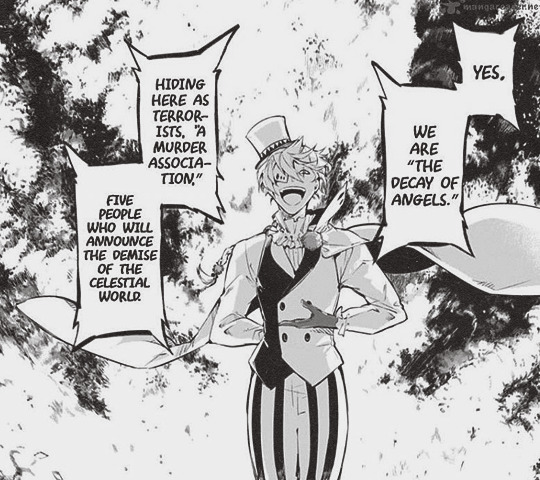
BUNGO STRAY DOGS VS LITERATURE: THE DECAY OF ANGELS
This is going to be the first in a long (long) running series where the goal is to read every single book mentioned by name in Bungo Stray Dogs, and try to connect the themes of that book to the characters who are referencing that book. In light of the recent arc I am starting out with "The Decay of Angels" the villainous organization consisting of Bram Stoker, Nikolai Goggol, Fyodor Dostoevsky, Ochi Fukuchi and Sigma.
The name Decay of Angels comes from Yukio Mishima's novel, the Decay of the Angel. The fourth and last book in his Sea of Fertility tetraology which is widely considered to be his masterpiece. I read all four books, so underneath the cut I'll elaborate on the connections between Yukio Mishima's work and Bungo Stray Dogs.
1. The Decay of the Angel
The Sea of Fertility is a tetralogy of novels written by Japanese AUuhor Yukio Mishima. The four novels are Spring Snow, Runaway Horses, the Temple of Dawn, and the Decay of Angel. The main timeline of the story stretches from 1912 to 1975, the main character of all four books is Shigekuni Honda a law student in Spring Snow, who's best friend Kiyoaki Matsugae dies at the age of twenty at the end of the first book. In each sequel, Shigekuni meet what he believes are the reincarnations of Kiyoaki, who are condemned by karma to die at an early age. Every time he attempts to save them from their deaths he fails.
The strongest connection between the Sea of Fertility itself, and the "Decay of Angels" organization depicted in Bungo Stray dogs is that both are heavily inspired by Buddhist ideology. The Sea of Fertility is an exploration of the concepts of both "reincarnation" and "karma" while the ideology of the decay of angels is to enact Karma in the real world for the past sins of the governing body.
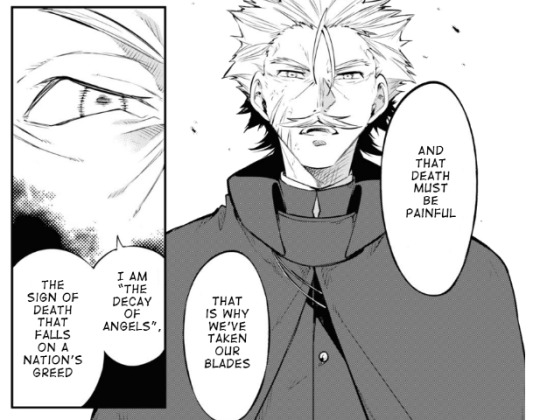
The brihadarankyaka Upanishad states: Indeed the person performing a good deed will become benevolent, and one performing a bad deed will bcome evil; one becomes pure by pure acts, and black by evil acts. Therefore it is said: a human being is composed of karma, or "desire" by following karma one creates will, by following will one creates karma, and through karma, samsara comes into existence."
The Temple of Dawn
Both the ideology of the Decay of Angels, and Yukio Mishima's work make constant references to budhism like this. Budhists conceive of the world as a suffering-laden sycle of life, death and rebirth without beginning or end known as Samsara. In essence in budhism, beings are driven from life to life in this system by karma which is activated by good or ill actions committed in this life as well as previous lives. Fukuchi's goal is more or less to make Karma real and enact it with his hand, to punish governing bodies for their past sins.
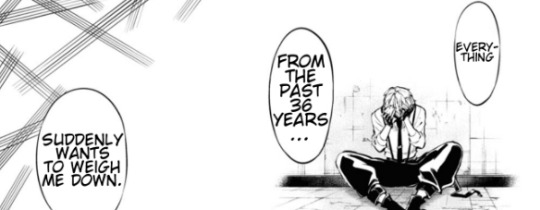
His ideals are also heavily budhist in nature, more or less budhists believe suffering in inherent to life. The goal of budhism is actually to stop being reborn and escape the cycle of death and rebirth by eventually purifying yourself of earthly desires, etc. etc. Fukuchi's goals allign with these ideas. Just like reality and earthly desires inherently cause suffering. As long as governments exists, they will continue to create war. The only way forward is to create a death and rebirth. Governments have to die, so society as a whole can be reborn into a higher, more enlightened state. He is essentially twisting lofty budhist ideals to justify his extreme political actions.

Bungo Stray dogs also borrows some symbolism from the fourth book, the Decay of the Angel. In budhist scripture Devas are mortal angels. A topic the fourth book discusses at length.
Here is the account in the twenty fourth fascicle of the Ekottara-augama: "There are thirty-three angels and one arch angel, and the signs of death in them are fivefold. Their flowered crowns wither, their robes are soiled, the hollows under their arms are fetid, the body ceases to give off light, it loses awareness of itself."
Decay of the Angel

There are five members of the decay of angels in BSD, Fukuchi, Fyodor, Goggol, Bram, and Sigma, just like the five stages of decay. Just as in budhist belief death comes for everything, even the angels, the stated goal of the organization is to bring death to the members of the world's government. Quite literally in Fukuchi's case, by controlling a vampire army (vampires being symbols of death due to being undead and bloodsuckers themselves).
2. Death and Rebirth
The main premise of the Sea of Fertility is tracking the four reincarnations of one individual. Each successive reincarnation lives a short life and dies for the sake of an ideal.
'Kiyoaki Matsugae was caught by unpredictable love, Isao Iiinuam by destiny, Ying Chan by the flesh. And you? By a baseless sense of being different, perhaps? If destiny is something that takes hold of a person and drags him after, then the other three had desinty. And has anything caught you?'
The Decay of the Angel
The whole organization of Decay of Angels, is seeking a somewhat symbolic death and rebirth of society, but at the same time as individuals four members are seeking to die for the sake of an ideal like the four lifetimes of Kiyoaki.

Gogol's may seem to be the simplest, to commit suicide in order to free himself entirely from god's will. He may be a russian character, but even some of his ideals are budhist. One of the major differences between Budhism and Hinduism as commented on in the books, is that Hinduism believes in the divine whereas in Budhism there are no gods. Not only do they reject gods, but they also reject the idea of a "soul."
"Budhism does not recognize the soul as such. If there is no core substance called soul in beings, there is of course, none in organic matter. Indeed quite like a jellfyfish devoid of bone there is no innate essence in all of creation. . If we assume there is no self, what is the basis of the birth-and-death cycle to start with?... WHen the Threavada Sautranika school evolved the concept of "seed perfurming" was established according to which the effect of a good or bad deed remains in ones consciousness, permeating it as the fragnace of perfume permeates clothes and thus forms character."
Gogol's ideal is similiar to that belief, he rejects both the idea of god, and the idea of his soul, in order to prove that all that exists of the universe is his free will and consciousness. He even goes through a metaphorical death and rebirth in order to reach that ideal, he fakes his own death, and then is revealed to be alive.
There's even a discussion of free will in several of the books, particularly the fourth.
"He should have armed them with the foreknowledge that would keep them from flinging themselves after their destinies, take awaay their wings, keep them from soaring, making them march in step with the crowd. The world does not approve of flying. Wings are dangerous weapons. They invite self-dstruction before they can be used."
Decay of the Angel
If you wanted to parallel him to one of the lifetimes, you could even say he is much like Kiyoaki, someone caught up in an unpredictable love. At one point in the story, as he's dying of sickness he continues to try to visit his lady love every day for the sake of seeing her one last time and considers facing his impending death to be a trial to prove his love. Gogol similiarly puts his closest friend through a life or death trial to see if his feelings spring forth from himself and his own free will, or are brainwashing.

"I'd tell myself in it was because I was insincere. I'd know in my heart that if only I had gotten out of the rickshaw and walked, no matter how weak I felt, then such sincerity - even if she was unaware of it - would have affected her, and she would have seen me. That's it then. There's no reason to have such regrets. I have no other choice but to risk my life, if I want to see her. To me, she's the essence of beauty. ANd it's only that which has brought me so far."
-Spring Snow
The second lifetime lived by Kyoaki is that of Inao who is a far-right extremist in Japan, who wishes to see japan return to its more imperialist ideals. As a whole these novels take place over a time frame that's post the russo-japanese wars, all the way to the lead up into world war two, and then post world war two. There are pretty obvious references to world war two (the island where Fukuchi fought on being a reference to Okinawa, Ahabaraki being a reference to the nuclear bomb). Bungo Stray Dogs also clearly takes place in a post-war society. The motivation of the current villain Fukuchi is the mistreatment of soldiers during that previous war.
Fukuchi resembles Isao, the far right extremist. In the second book there is a long recounting of the history of the Satsuma Rebellion. It was a revolt of disaffected samurai against the new imperial government, nine years into the Meiji Era. In the book it’s mentioned they prayed at a shrine a number of times, and waited to rebel until they believed the god’s themselves approved of their rebellion. The main character of the book Isao wants to enact a similar rebellion against the government to rid Japan of western influence and to make the emperor all powerful again.
The sins I refer to have nothing to do with the law. And the greatest sin is that of a man who, finding himself in a world where the sacred light of His Majesty is obscured, neverthless determines to go on living without doing anything about it. The way to purge this grave sin is to make a fiery offering with one's own hand, even if that itself is a sin, to express one's loyalty in action, and then commit seppuku immediately. With death, all is purified
Runaway Horses
The goal of the main character is to "before the sun... at the top of a cliff at sunrise, while paying reverence to the sun... while looking down upon the sparkling sea, beneath a tall, noble pine... to kill myself..." He is a man who wants to commit a sin he believes will put his country on the right track, and then die for his country. He also believes the only way forward is a military coup (guess what happens in japan in a couple of years). Fukuchi's goal may be the opposite, but he still uses the same methodology. He has seized full and total control of the world's governments acting as an ultimate emperor to achieve his goal. Everyone else is just instruments and puppets to him, he literally changes them into mindless zombies.
"Here was the power of the emperor himself. Only on this drill ground was the hand of the sun working with a mathematical clarity and precision. Only here! The will of the emperor penetrated the sweat, the blood, the very flesh of these young men, piercing their bodies like X-Rays."
Runaway Horses
Fukuchi's goal is essentially to fight imperialism by using tools of imperialism himself. He also invokes the divine when fighting against Akutagawa and Atsushi, saying he carries and enacts the divine will. He is focusing all power on himself, the same way Isao wished for the emperor to have total control and authority of the country once more to purge out western, socialist, and capitalist influence.

He also, just like Nikolai experiences a death and rebirth on the battlefield. Fukuchi was once manipulated like Isao by far-right ideals that joining the military would equate to protecting both his comrades and his countries, only to be eaten up and chewed out by the war-machine and not accomplishing protecting anyone but the governments already in place, creating the current Fukuchi.


Just like the deaths of his comrades were wasted, Isao also experiences a disapopinting suicide which is the exact opposite of what he wanted, and the ideal of dying with honor presented throughout the story. Which clearly illsutrates all the militaristic and far-right ideals Isao believed in through the story, were proven false and nil by the end.
“The sun will not rise for some time,” Isao said to himself, “and I can’t afford to wait. There is no shining disk climbing upwards. There is no noble pine to shelter me. Nor is there a sparkling sea.”
Runaway Horses
The third book features Thai Princess Ying Chan who is said to have been caught by the flesh. This will be the shortest section because the third book is very dark, but basically the third book the Temple of Dawn deals with how the elder generation of japan, preys upon and takes advantage of the youth. Ying Chan because of her youthful body, is molested by two adults who she trusts.
Sigma is someone similiar to Ying Chan, a youth who is born and then continually used by everyone around him in his life. He is the ultimate child taken advantage of by society passed over again and again due to being born from "nothing."

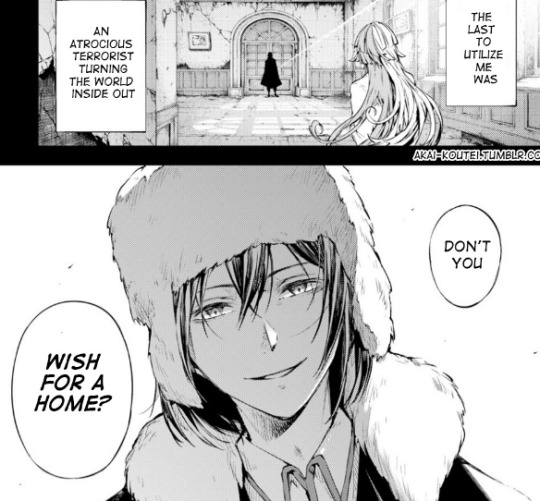
The last reincarnation depicted in the fourth book "The Decay of the Angel" deals heavily with themes of nihilism, and deeply resembles Dostoevsky. Especially if you believe Fyodor is in part an adaptation of Raskolnikov's theory that truly great people should be above morality as depicted in crime and punishment.
Toru's goal in the Decay of Angels, is to devote himself to a pure form of evil and get lost in the pursuit of it. He is depicted as a twenty year old exceptionally brilliant individual who does not form relationships, is detached from the society around them, has no strong pursuits except for this, and his highly nihilistic believes. The kind of nihilism that is portrayed for its flaws in many of Dostoevsky's works.
"My purity will presently wander beyond the horizon to that invisible realm. Probably not on the end of unbearable pain, I shall seek to become a god. The pain! I will know of it, the pain of absolute silence, a world of nothing at all. I will crouch in the corner, like a sick dog. And the happy ones will sing songs around me. There is no medicine for it. No hospital. It will be written in tiny gold letters somewhere in the history of the race: that I was evil."
Which mirrors the description of Fyodor in his introduction as something "Darker than evil, something horrifying."
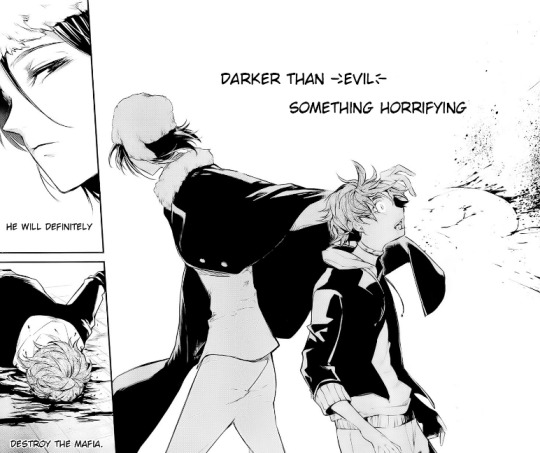
Fyodor is also someone with a large blind spot when it comes to ordinary people, this is something he is lectured on by Dazai. That he believes he has enough control like a player sitting outside of the gameboard that he can control the movment of every single piece. That the world is controlled by great people manipulating it. Whereas Dazai's beliefs are the world is controlled by everyone's actions moving together in an unpredictable fashion, rather than a god sitting outside manipulating things.

Toru receives a similar lecture because he bbelieves himself to be some kind of great man due only to his extra intelligence and how isolated he is from others.
"There is no special right to happiness and none to unhappinnes. There is no tragedy and there is no genius. Your confidence and your dreams are groundless. If there is on this earth something exceptional, special beauty or special evil, nature finds it out and uproots it. You thought didn't you, that you were a genius beyond compensation. You thought of yourself, didn't you, as a beautiful little cloud of evil floating over humanity."
The Decay of the Angel
Which seems to be the lesson that the story is going in the direction of teaching Fyodor, that there is no such thing as inherent specialness, exceptional people, gods or demons.
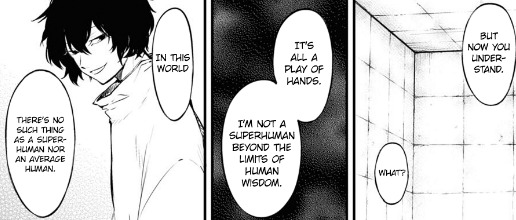
Fyodor is also someone who while he has no undergone a death himself, his goal is to deal death, which he seems to be able to do with just a touch of his hands, in order to make the world reborn into a “world without the evil of ability users”. Death, birth, and rebirth are themes that are strong with all five of these characters.
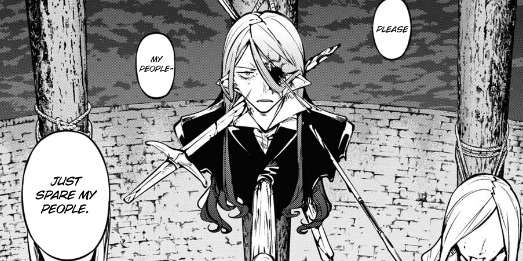
As for Bram he’s the character we know the least about, but I would say while Fyodor, Fukuchi, Gogol and Sigma can be equated to individual lifetimes of Kyoaki, Bram himself being an immortal vampire and oldest of the group is much like Honda who is an outsider and witnessing the lives of young people being reborn over and over again. Especially since by the fourth book he is eighty years old and essentially a helpless elder. The various lifetimes of Kiyoaki die young, he lives on a much emptier life than any of them. Bram’s just a head. He’s the most helpless of the whole group. He’s just a witness to all of this. But he’s also an immortal vampire, so therefore an outsider to the cycle of death and rebirth.
Well, that is all I have to say about “The Decay of the Angel” and the connection to the “Decay of Angels” depicted in Bungo Stray Dogs, and the five members who make it up. I fully reccomend picking up the book, just as Bungou Stray Dogs is shaping up to be anti-war in its text and the depiction of several successive generations (the war generation, the post war, the Sea of Fertility is a massive work referred to as “the most complete vision we have of Japan in the 20th Century” by Paul Theroux. It deals with similiar themes in BSD of the changes between generations, the shift in society of japan in the last century, the influence of imperialism. If you want to pick it up and read it, it comes highly recommended by me!
#bsd meta#bungou stray dogs meta#bungou stray dogs theory#bungou stray dogs#bungou stray dogs analysis#fyodor dostoevsky#bsd fyodor#nikolai gogol#bsd gogol#fukuchi ochi#sigma#literature analysis#the decay of angels#yukio mishima#decay of angels#doa
351 notes
·
View notes
Text

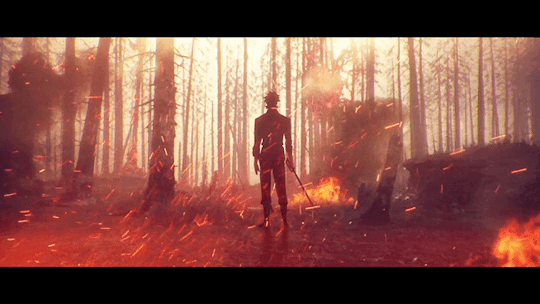
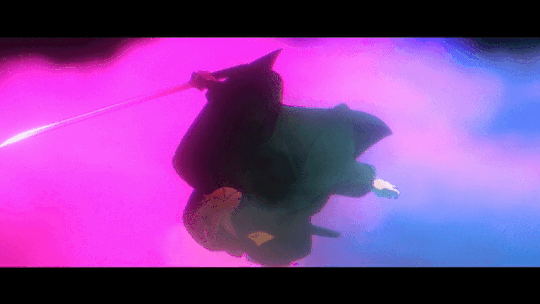




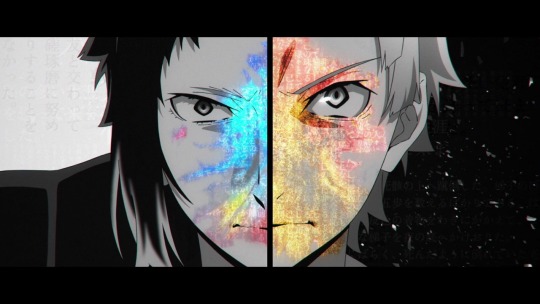
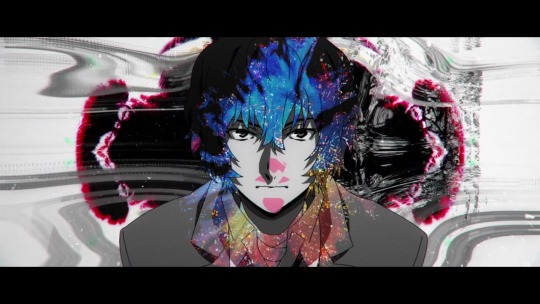
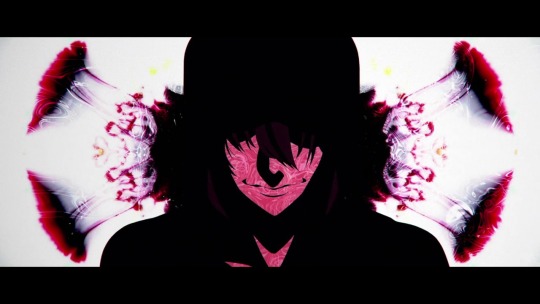
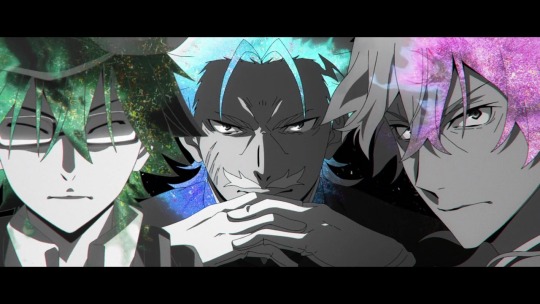
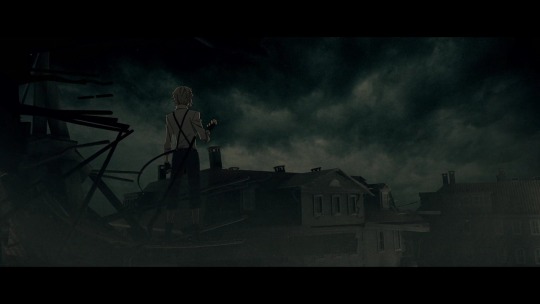

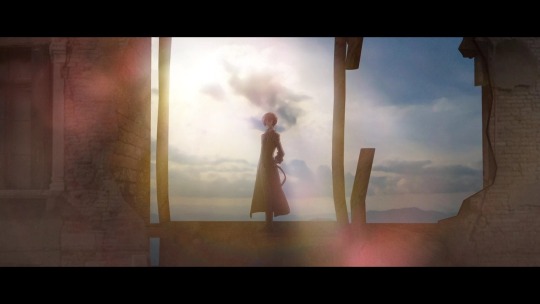

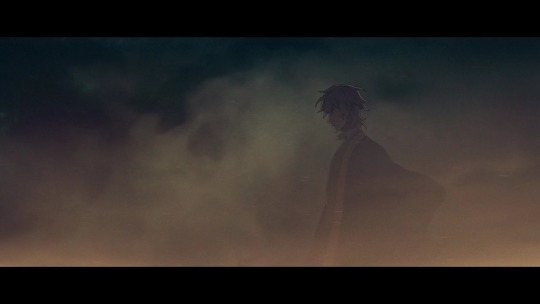
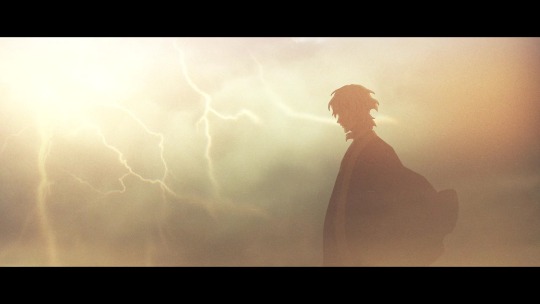

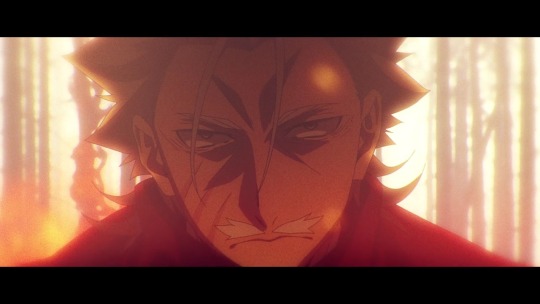

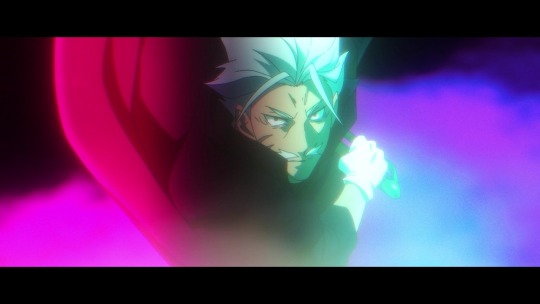
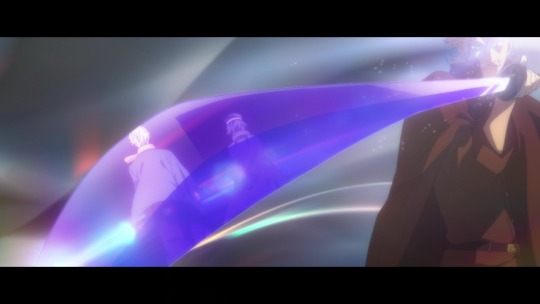

Bungo Stray Dogs S5 Openning fukuzawa recap


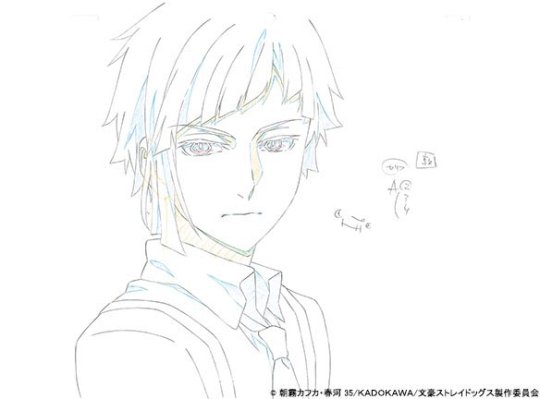
#Bungo Stray Dogs#bsd#bungo#bungosd#bungo stray dogs season 5#bsd s5#fukuchi & fukuzawa#fukuzawa & ranpo#yukichi fukuzawa#fukuzawa & fukuchi#fukuchi ochi#fukuchi genichirou#fukuchi#fukuzawa#fukuzawa yukichi#edogawa ranpo#dazai osamu#nakajima atsushi#akutagawa#fukumori#mori ougai#bsf gifs
120 notes
·
View notes
Text

While you were studying the blade, I also studied the blade. We both studied the blade together (and maybe even kissed a little).
40 notes
·
View notes
Text
Boy troubles
mori & fukuchi having beef: gakuen edition
Training had been pretty successful that one afternoon, which had really done wonders for Fukuzawa’s mood after the morning classes; if one listened close enough, they could even hear him softly hum as he returned the swords to their usual place. His day wasn’t finished yet, but with a little luck it could turn out to be quite calm and…
… and upon returning, Yukichi quickly realized he might have to ‘fight’ for said calm. Of course.
“Aren’t you a bit too young, anyway?” Gen’ichirô was saying, almost innocently, when it was clear as day he knew the answer already.
“I’m just a year below you two, remember?” Mori instantly answered, braiding the hair of that blonde doll of his as if that was his only remedy against snapping. Not like Fukuzawa was worried about it actually happening, though. Both of them’s preferred style of quarrel with each other tended to be some sort of cold war which had him as the objective.
Because obviously, he had noticed. Besides, the way their heads turned towards him instantly left very little room for doubt.
“Fukuzawa-senpai,” Mori then asked. “Are you free this Friday? Because–”
“No way.” Gen’ichirô cut him off. “We’re having practice after class on Friday too, and then–” Fukuzawa stared at both of them, biting back a sigh. At least, he could end the whole thing with something as powerful as the truth.
Hopefully.
“I’m sorry, Mori-kun, Gen’ichirô. I promised Ranpo-kun ice cream after training.”
(Also on ao3.)
#fukumori#fukufuku#fukuzawa yukichi#mori ogai#fukuchi ochi#bsd fukuzawa#bsd mori#bsd fukuchi#bsd#bungou stray dogs#my stuff#clau stuff#ficlet#this was so funny lakjdsf#me making mori and fukuchi argue be like: *throws coin*#will it be serious matter or boy drama
17 notes
·
View notes
Text
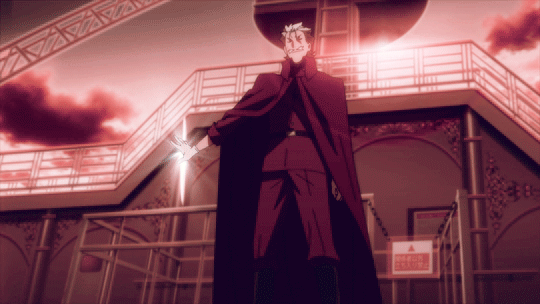

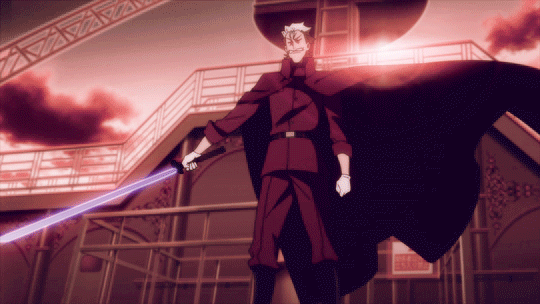

The battlefield is a garden of carnage whereupon justice, courage, and conviction die all the same.
The only possible paths are a death that is mirciful or one that is not.
Welcome to the battlefield.
→Bungou Stray Dogs S5 ✩ Ep.3
#bungou stray dogs#bungo stray dogs#bungo stray dogs season 5#bsd#bsd daily#animedaily#bsd gifs#bsd fukuchi#ochi fukuchi#fukuchi ochi#ōchi fukuchi#anime gifs
26 notes
·
View notes
Text

For the record, my bet is on Fukuzawa
#bsd manga spoilers#bsd manga#bsd#bsd 103#fukuzawa yukichi#fukuchi ochi#Grandpas gonna go get his kids back#bungo stray dogs
210 notes
·
View notes
Text
youtube
making this killed me i am dead from exhaustion it KILLED me. it should NOT have been this hard to find good audios. gah.
#bungou stray dogs#dazai osamu#nakajima atsushi#nakahara chuuya#soukoku#akutagawa ryuunosuke#yosano akiko#fukuzawa yukichi#fukumori#mori ogai#mori ougai#zenki soukoku#edogawa ranpo#shin soukoku#bsd stormbringer#fukuchi ochi#fukuchi ouchi#bram stoker#koda aya#bsd chapter 101#bsd chapter 109#Youtube#bsd season 5#bungou stray dogs season 5
17 notes
·
View notes
Text
@pompompurin1028 here is what I discovered about Fukuchi Gen'chirou last night HAHA it's quite long so I decided to dedicate a post for it
thoughts on the life of Fukuchi Gen'ichirou/Ouchi
Below the cut is a half-essay half-ramble about the biography of one of Meiji Japan's pioneers. A lot of it consists of comparisons with Fukuzawa Yukichi, another famous intellectual of the day, and of course, their BSD counterparts.
If you're curious as to where I got this information, I'll be posting the sources in the replies of this post
notes: contains MAJOR spoilers for BSD S4 and the manga!
Fukuchi Gen'ichirou (1841-1906), penname Fukuchi Ouchi was, like his better-known contemporary Fukuzawa Yukichi (1835-1901), one of the leading advocates for modernization of Meiji-era Japan. Both were men of many talents that dabbled in several fields such as diplomacy and politics, but Fukuchi is most recognized for his contributions as a journalist and editor of the Tokyo Nichi Nichi (Tokyo Daily), earning him the title “Father of the Modern Japanese Press.”
A young Fukuchi was in high pursuit of the Western ideal. He grew up under the Tokugawa shogunate and studied what children of his time were made to learn: memorization of Confucian classics, calligraphy, and Chinese literature. As such, it was no surprise that it was his instinct to nearly reject all forms of Japanese tradition once he began his Dutch studies (rangaku) and even went so far as to leave his hometown to continue his studies in the capital, Edo. After learning Dutch and English, he worked as an interpreter for the shogunate - a path many scholars then would frown upon. This is not unlike Fukuzawa’s own beginnings, I must add.
[I would like to note that during the isolationist Edo period of Japan, the only access they had to Western goods and thought were through the Dutch: the only Westerners they traded with. However by the 1850s, even the most well-studied Japanese in rangaku would have fallen behind as most of the advancements, brought about by the arrival of the Americans, would have required the knowledge of English.]
As the years passed, however, what used to bring him such euphoria then began to wear him down. Interacting with these Westerners whom he so idolized only to be met with insensitive and tyrannical people sparked Fukuchi’s disillusionment. For example, merchants were considered to be one of the lowest classes in Tokugawa Japan, yet these Western merchants acted as if they were in the same league as the emperor. In his own words: “They made us furious. They were proud, rude, antagonizing barbarians.”
This would bring Fukuchi to some sort of blend between Eastern and Western thought. The goal was, as it had always been, the strengthening and modernization of Japan, but that did not require a total upheaval of their traditional values. Only a selection of Western methods would work. This may seem like a reasonable compromise (as a similar strain of logic could be found in Fukuzawa’s own writing), but as we shall see later this blend is not as harmonious as it seems.
When the shogunate was overthrown by the Meiji government in 1868, Fukuchi established a newspaper (a “modern-style” one at that) to defend the Tokugawa family and to criticize the new government. This would be the beginning of his career as one of the foremost journalists and critics of the time. He believed that:
"If I were to take up writing with the brush, using the newspaper as my medium I might eventually see my ideas realized in society."
Now let’s discuss: “what tf is a modern-style newspaper?”
Up to the early Meiji period, newspapers were viewed as “low forms of entertainment” that educated men of high class should not bother thinking about. Political editorials were superior to “news” as the latter usually compromised what we’d consider as gossip. Fukuchi, still bred in Western thought, had a different idea: objective news reporting is just as valid as political write-ups. As he said,
“Newspapers are the eyes and ears of the world, the movers of mankind”
There are two types of staff for these newspapers: the “real writers,” those who wrote political editorials, and the illiterate “news” gatherers. In his newspaper Fukuchi made even the former type to go on the hunt for “real news,” and because of this and the coverage of the 1877 Satsuma Rebellion, he is considered to be one of the first war correspondents (which is, btw, one of Kunikida’s early jobs. just had to plug that in sorry HAHA. it’s a good enough job tho, that’s my point).
But this did not mean that he viewed the two forms as equal. The front page was still dedicated to commentaries and opinions rather than plain news. This may be attributed to the fact that “he was reared in a country and era where public service was defined not in terms of aiding society, but of assisting the bureaucracy of government.” His editorials were sharp and bold, despite the new laws restricting press freedom, criticizing the current Meiji government and advocating for a parliamentary government and international trade. Like many other critics such as Suehiro Tetchou, he would end up in jail for some time.
Being a journalist and editor gave him a voice and eventually political influence and power. As Fukuchi would repeat over and over again,
"If one cannot become prime minister one should become a journalist."
He would join and become president of the first prefectural assembly in 1879, the same one Fukuzawa joined but left only a year later to focus on “the need to develop an independent intelligentsia,” such as managing the school he founded (which would later become Keio University). Perhaps he had sensed that this political body would do essentially nothing - one thing that Fukuchi did not or perhaps refuse to recognize. He felt that this assembly, as well as the conservative party he founded in 1882, were the “right” balance of Eastern ethics and Western methods he had so dreamed of.
Huffman and Brown have noted in their writings that Fukuchi’s personality was “less than admirable.” I’d like to believe that this is one of the main driving factors for the philosophies he’d held in his life; it just fits so perfectly. For one, his sense of fashion was close to that of a Western dandy (see pic below) but the customs he preferred were very Japanese (tea, architecture).

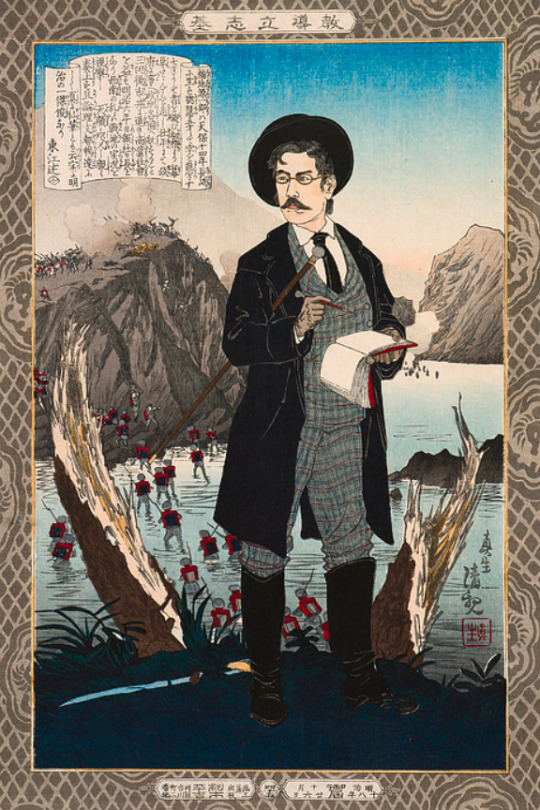
Fig. 1 Fukuchi in his old age (left) and a woodblock print of him in Kyushu 1873 (right)
Huffman notes that this may not strike one as strange, but the symbolisms are very much clashing. He’d also “strut openly with geisha, throwing money away,” according to Mori Ougai, despite his conviction in being a “high class man.” Another contradictory trait of Fukuchi’s is his penchant for criticizing officials for having their favorites, yet he has his own “feudal” tendencies and maintained his inability to be “objective and cool-headed.” As his friend and Fukuzawa’s rival Itou Hirobumi said,
“If you would just quit acting so much like a loyal retainer, Fukuchi, you might be named to a post like foreign minister!”
This intensity and disjointed personality is similar to the Fukuchi of the Bungou Stray Dogs universe. On one hand he’s wacky, hot-headed, and highly unpredictable, but on the other hand he’s calculating, cold, and cunning. Both are highly ambitious as well and would sit at positions of power for “national tranquility.”
Now you might be wondering why a pioneer such as Fukuchi doesn’t receive as much recognition now compared to his peers, like Fukuzawa Yukichi, the face of the 10000 yen bill. Huffman lists a few possible reasons for this such as 1.) His aforementioned “disagreeable” personality, 2.) His failure to concentrate his energy into any one particular cause or field (back and forth with writing for the newspaper, fiction (Mirror Lion, the BSD ability), and somewhere lingering about in politics). But I believe those listed by Brown ring truer to the reality of it all: mainly, that his interests remained political and diplomatic, incapable of stirring much change in Japanese society.
Honestly, I couldn’t really tell what exactly Fukuchi’s ideals were. Maybe I just don’t understand politics or history enough, but I just find reading about the rapid and contradictory changes in his actions is just confusing. For example, Fukuchi would become pro-Meiji government for a time, although the likely explanation is that he did find some policies he agreed with. A better example yet is he’d advocate for a constitutional government, then later draft a document securing absolute power to the Emperor. This contradiction may be solved, at least according to Huffman, by considering Fukuchi’s view on the Japanese monarchy: its sovereignty is “unlike European tyranny” since he believed in the benevolence of the Emperor. It would “violate Japanese history” to believe otherwise. Is it absolute faith in his country’s sovereignty that drove him here? Or stubbornness and naïveté? Whichever the answer was, the changing tides of the era would drive him out of his own mind… literally.
After 1882, newspapers that prioritized faithful and objective reporting of news, like Fukuzawa’s Jiji Shimpou (Current Events), would soon dominate as public interest in politics declined significantly. Fukuchi’s obstinacy in maintaining the old ways did harm for the Nichi Nichi, lowering sales and eventually forcing the company to fire him. This makes sense from a business perspective, but from a highly traditional Japanese viewpoint, it is “an act of tyranny.” He left the political scene a bitter man.
There is another immediate reason for Fukuzawa’s lasting impact. Despite having similar goals with Fukuchi, Fukuzawa had someone to pass on his ideas to: an English translator and biographer to record his life, his own sons (Sutejirou took over his father’s newspaper, Momosuke, although adopted, became a successful businessman and brought hydroelectric power to the nation), and of course, the university he founded: Keio University. BSD’s Fukuzawa has the ADA to carry on his visions and his life’s purpose, while Fukuchi’s sham of an organization already had two turn their backs on him. (Not sure where Teruko and Tetcho lie as of now, although I think Teruko would be the only one to stick with Fukuchi to the end to some extent, even though irl Fukuchi and Suehiro had a lot in common).
Ultimately, I think that BSD Fukuchi’s demise will be brought about by his arrogance and ambition. Not having any true convictions, goals, or family, he’ll have nothing to fall on once he slips from the tremendous summit he made for himself.
There might be redemption for him, though. I’ve shared in a different post the following quote:
"When Fukuzawa died, Fukuchi wrote rather plaintively:
In 1874, when I was editing Tokyo Nichi Nichi, he said to me, 'You have taken up the newspaper business; that is wonderful. Be careful though not to get tied too much to the government. If you become too closely tied, they will mislead you.' In the end, they did... Ah, you were a good friend, a trustworthy friend. You did not let me down; I let you down."
Perhaps BSD Fukuchi would realize that his jealousy and hatred for his long-time and only true friend was based on nothing. But as to whether or not it will happen soon, we’ll only have to wait and see.
44 notes
·
View notes
Text
I’m personally devastated that Mori and Fukuchi never got to meet. Not only would it be THE pettiest bitch-off the world has ever seen, poor Fukuzawa would be just sitting there in between them with no expression whatsoever as the Hunting Dogs, PM, and ADA just watched them with growing horror, unable to look away.
#ranpo’s eating popcorn. teruko is crying. dazai is recording a video. akutagawa tries to flee the scene entirely#mori *sidling close to fukuzawa*: who is this man yukichi?? you’ve never mentioned him before 💅#yosano starts loudly playing ‘the boy is mine’ by brandy & monica on her phone for ambiance#bungou stray dogs#bsd#yukichi fukuzawa#fukufuku#fukumori#fukuzawa yukichi#ouchi fukuchi#fukuchi ouchi#ougai mori#mori ougai#mori ogai#ogai mori#bungou gay dogs#bungo stray dogs#ochi fukuchi#fukuchi ochi#bsd fukuzawa#fukuzawa bsd#bsd fukuchi#fukuchi bsd#mori bsd#bsd mori#neo queen serenity’s posts#this is my valentine’s day gift to you. you’re welcome
194 notes
·
View notes
Text

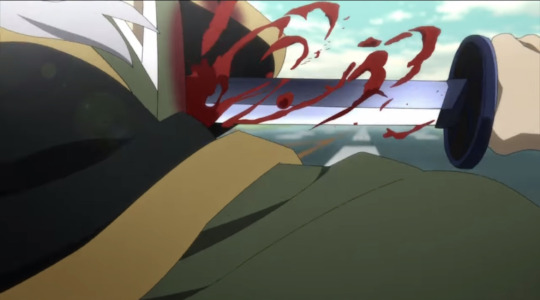
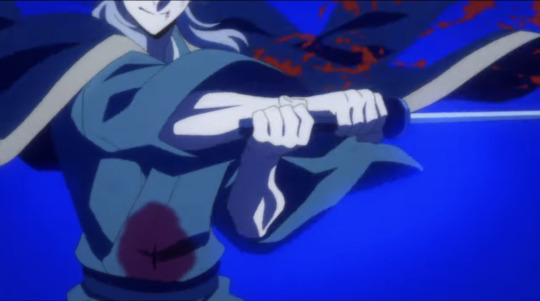

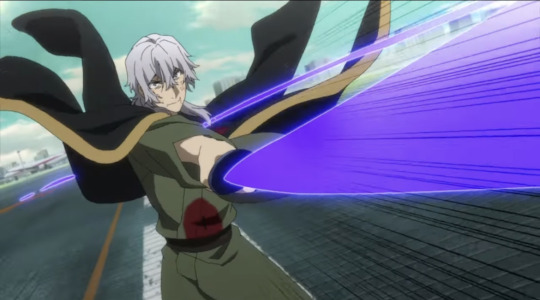
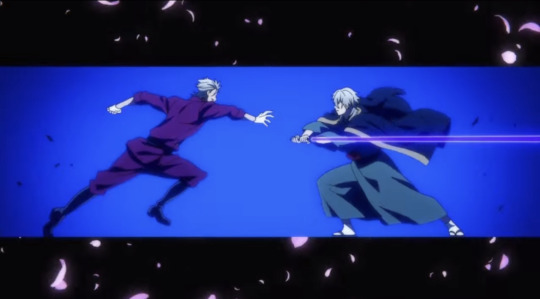

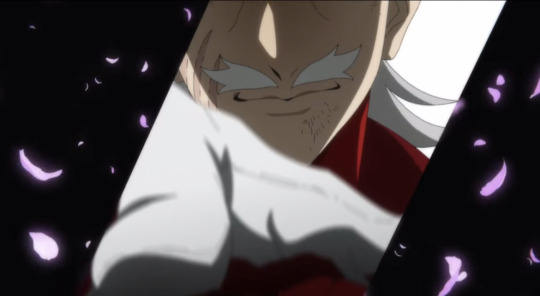

oh my god. is fukuzawa gonna take down fukuchi.
#i love tbis actually#bsd#bungou stray dogs#bsd spoilers#bsd s5 spoilers#bsd fukuzawa#fukuzawa bsd#bsd fukuchi#fukuchi bsd#old man yaoi strikes again#bsd trailer#fukuzawa#fukuzawa yukichi#fukuchi ochi
158 notes
·
View notes
Text

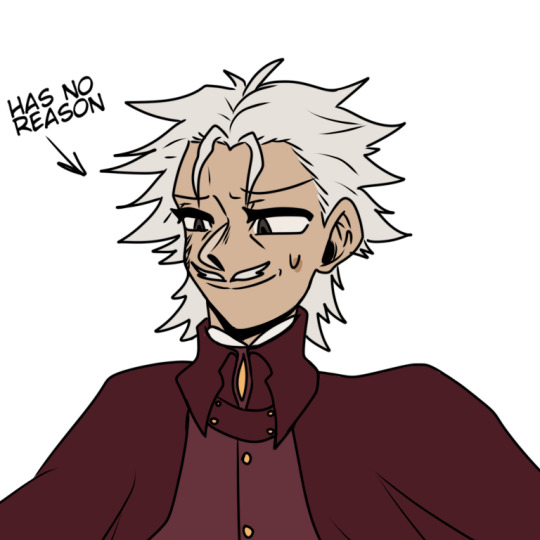
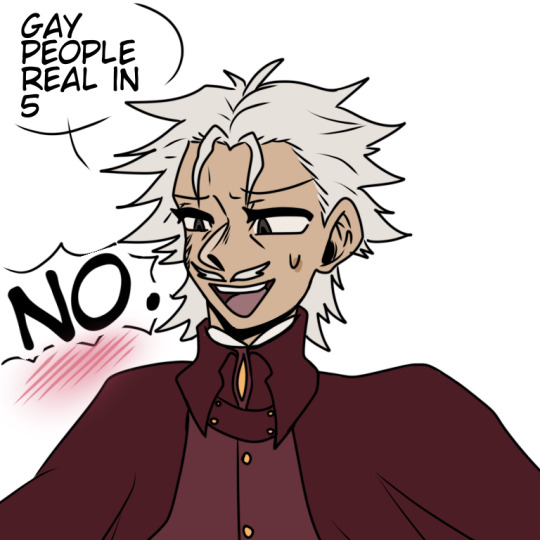
gay people real in 5 (real)
#bsd#bungo stray dogs#bungou stray dogs#suegiku#saigiku jouno#saigiku jono#jono saigiku#jouno saigiku#tetchou suehiro#tecchou suehiro#suehiro tecchou#suehiro tetchou#ouchi fukuchi#ochi fukuchi#fukuchi ochi#fukuchi ouchi#bsd jouno#bsd jouno saigiku#bsd saigiku#bsd saigiku jouno#bsd tetchou#bsd tecchou#bsd fukuchi#jouno x tecchou#tecchou x jouno#jouno x tetchou#tetchou x jouno#bsd fanart#artists on tumblr#xandraws
672 notes
·
View notes
Note
Would you ever do a Fukuchi meta? I'd love to read your thoughts on him and his role in the story.

Fukuchi is an interesting character in the fact that he is not what anyone expects him to be, and he never does what's expected of him. I feel like he doesn't get discussed a lot, for many reasons, one being he's the reason this arc is dragging, the second he's an antagonist who's not a pretty anime boy, he's also kind of soaked up screentime from DOS who all indications point to is the longterm more important antagonist. However there's still a lot going on with his character, the hunting dogs may be late additions to the story and their arc may have like cannibalized the whole narrative but they're still fantastic characters in their own right.
1. The Two Fukus
So Fukuichi's character really starts when he is revealed to be Kamui, turning him from what was a pretty shallow foil for Fukuzawa, an old buddy and wise mentor type just on the hunting dogs not the detective agency into the prime antagonist of the arc. I call this plot twist, the surprise twist that is not really a surprise. After all despite Dos being effectively billed as the main villain of the decay of angels, and Sigma and Goggol being his instruments he has been effectively in prison the whole arc. It is the hunting dogs who have dogged the detective agency every step of the way.
A lot of what makes Fukuichi's character and the hound dogs as a whole so meta-textually interesting is the way he plays with all of these expectations. After all, why would we expect anyone other than Fukuichi to be the main villain of the arc? The antagonist has always been the hunting dogs. They've been shown to be both brutal and relentless. They have amoral members like Jouno and Teruko who are perfectly willing to employ torture both psychological and physical to their enemies. Jouno even admits that he enjoys it, and he doesn't even particularly care if the person he's hunting is innocent or not because it's not his job to sort out who is innocent and guilty it's his job to just hunt down whoever he's pointed at to the best of his ability.
Yet it's surprising as a reader that the leader of the Hunting Dogs is the main antagonist of the arc, and the one responsible for framing the detective agency in the first place? And why is that?
Perhaps, because the natural assumption is that because the Hunting Dogs are working with the government, instead of say outright criminals like the Port Mafia that they must have some honorable reason for what they are doing. They are recognized by the government and given that position of privilege and power so therefore their government approved justice must be the right justice.

In the way we ignore basically every sign that the Hunting Dogs are corrupt and a perversion of justice because they have government backing, we also tend to just assume governments themselves are by default good because they create and maintain laws.
We assume because the government is just, that the framing of the Detective Agency is just a misunderstanding, or a malicious manipulation by Fyodor to hurt our heroes. That once the framing of the detective agency is cleared up then of course everything will go back to normal, because the problem is not how the Hunting Dog relentlessly pursue their targets and their perverted wielding of justice, it's just they've got the wrong guys. If they were to pursue actually guilty people with those same methods than that's totally okay. Which is why for the vast majority of this arc, the Detective Agency only cares about clearing their names assuming naturally this will solve all problems.

This all comes to a head of course when it's revealed, not only does Fukuichi already know that the detective agency is innocent, he is the one who framed them to move his agenda forward. Fukuichi is in an instant changed from what looked to be the most honorable and reasonable of the hunting dogs, to traitor despite being close friend and personal foil of Fukuzawa himself the moral backbone fo the detective agency.

And I think a lot about what is interesting about Fukuichi's character is the subversion of what he represents. Fukuzawa is a trustworthy authority figure, he's also a character who is steeped in traditionalism, and a character of the older generation. We trust him because we are told to trust our elders and believe the previous gen has our best interests in mind. Despite the fact that children are pretty regularly exploited in Bungou Stray Dogs, and we have tales of horrible poverty and abuse in many of the younger generations backstories we still believe that older generation and organizations like the government are keeping the peace and doing the best they can.
The world of BSD as shown to us if anything is one that has the thin veneer of peace and order, and yet is clearly ravaged not only by a terrible war in recent history, but also suffers from extreme proverty and unrest in areas, not to mention crime so bad it requires leaving an organization that deals in human trafficking, organ harvesting, drug trading on the regular like the port mafia in power because it acts like a crime deterrent. Fukuichi convinces the world's assembled governing bodies that the world itself teetering on the brink of chaos is this way because of "terrorists" of a few bad eggs like dostoevsky and his ilk, and not just a natural result of what seems to be a really shoddy governmental system that's bad at keeping the peace.
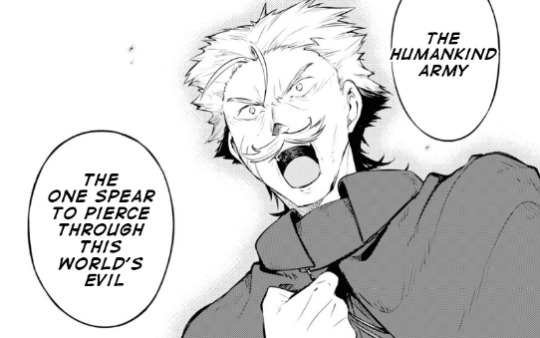
And we're given a pretty obvious reason as to why the government as depicted in Bungou Stray Dogs is so poorly constructed to begin with, and it's because rather than using you know, social programs, taxes, services for the public good like governments are supposed to do the government instead focuses on fighting enemies and maintaining order not only through an iron fist but also through the empowerment of a select few powerful individuals. This is something really made worse by ability users, of cousre in a world where superpowered individuals exist one of the government's main way of enforcing its power is by supersoldiers. It seems obvious if you think about it.
So Fukuichi's character if anything reads to me as a criticism not only of the blind faith the citizens and even the good guys like the detective agency have in a government that has so clearly failed its population as an institution, but also the readers as well and our tendency to trust governments and institutions like the police and the military even when they've pretty obviously failed or abused their position. And why? Well, one of the biggest reasons is because people are tempted to simplify what is a messy reality into a black and white conflict between heroes and villains. It all starts with a character we naturally assume to be a good person, a war hero, a person who wields justice in the name of law and order turning out to be a selfish manipulator.

The subversion around Fukuichi's character only builds from there. First, Atsushi having main character privilege and plot armor there's never really been a character that's able to stand up to the tiger before. Atsushi won the super power lottery, he has super healing, on top of one of the naturally strongest abilities even though he's not actually that good of a fighter. The first thing we're shown is Atsushi is absolutely useless in a fight against Fukuichi.Main character privilege doesn't apply anymore. Atsushi's not the hero anymore, in fact in one perspective he is fighting a hero who has saved the world several times on a scale Atsushi as a teenage boy doesn't really udnerstand.

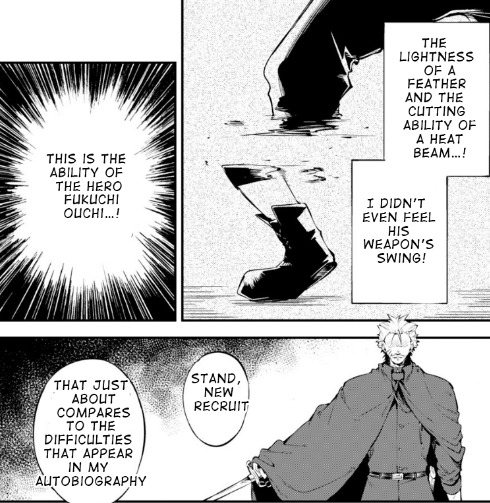
The first thing Fukuichi does is cut Atsushi's leg off and order him to stand, because the pain he's facing right now is absolutely nothing compared to what Fukuichi has been through. Atsushi's not facing off against someone with a powerful ability, but a seasoned hero who far outstrips his combat experience in every step of the word. After which point he imediately paralyzes Atsushi with fear and cuts off his plucky hero attitude.
Fukuichi is unique among all of Bungou Stray Dogs antagonist in how genuine a threat he is. Nothing the heroes throw at him works. Dazai's near omniscient planning ability fails. The Shin Soukoku combination which has always beaten any enemy that it was up against before not only doesn't win the fight, but all they can manage to do is flee in shame after sacrificing Akutagawa's life.
Fukuichi doesn't really conform to any narrative expectation of him at all. After all he was the antaagonist who showed up at the end of the arc, he was supposed to be put down by the Soukoku combination like a final boss and after they retrieved the page from him, the detective agency would be proven innocent and then everything would reset to status quo like it did after Fitzgerald and the Cannibalism arc. But... thats not what happened. Not only does he subvert the expectations of the narrative, but the characters themselves keep trying to make Fukuichi conform to a more easy to understand character. After all one of the first thing Atsushi shouts at him is that he must have suffered from a tragic backstory during the war time that is responsible for his fall.

We learn right away he did experience the horrors of war, but he wasn't the victim in that case, he was the crimminal who committed war crimes. He's tormented not by actions done to him, but rather actions he did to others.


Fukuichi makes it clear to Atsushi the much harder to digest idea, that it was the needs of the government itself and the "greater good" that even the detective agency is supposedly fighting for that required him to be a monster. Something that Atsushi immediately rebuffs and simply labels him as an evil to be stopped.
Which is interesting because the Hunting Dogs have always been about doing evil in order to pursue absolute justice. But once again, we as the audience misinterpret this to mean well they're only being cruel and ruthless on people who are crimminals and therefore deserve it. We miss out on the really obvious fact that if they're willing to act this inhumane with crimminals, then really how far away are they from practicing that same cruelty on completely innocent people.

Fukuichi then goes on to express a very budhist idea.
The eight worldly concerns or eight worldly dharmas (Skt. aṣṭalokadharma; P. aṭṭhalokadhamma; T. འཇིག་རྟེན་ཆོས་བརྒྱད་, ‘jig rten chos brgyad) are a set of worldly or mundane concerns that generally motivate the actions of ordinary beings.[1] They are:
hope for pleasure and fear of pain,
hope for gain and fear of loss,
hope for praise and fear of blame,
hope for good reputation and fear of bad reputation.
Preoccupation with these worldly concerns is said to be an obstacle to genuine spiritual practice.
Basically budhism elaborates on the concept that the reason evil or misfortune exists in the world on such a grand scale is because it is perpetuated by everyone, normal, average people are so preoccupied by normal every day concerns that they don't spend their lives living in pursuit of justice or the right thing.
Which is essentially the concept that Fukuichi's entire character revolves around, because most normal people don't pursue justice, because the vast majority of people are weak, because they do what is easy rather than what's right they force the burden on heroes like Fukuichi. People rely on narratives of heroes, of good and evil, because they don't want to face the very mundane corruption of the world around them. Fukuchi is a monster and a tyrant but he's also someone who has been forced into that role, because both he, and everyone around him had to sacrifice their humanity for the sake of the so called "Common Good". Fukuichi's suffering is extremely profound, even as he freely hurts others and betrays close friends and allies. He mentions to himself that his own existence is so painful, he'd rather have been nothing and not have been born in the first place. He doesn't even seem to want to be doing the things he is doing, but continues on out of necessity.
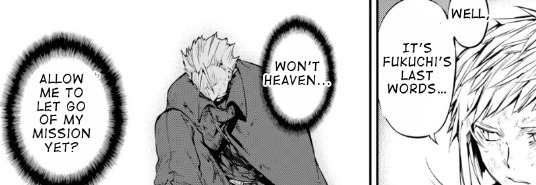
Fukuichi's methods are selfish manipulation and cruel betrayal of his own allies the moment they call his actions into question and stand up against him, and yet he seems to carry it out for entirely selfless reasons. Fukuichi himself remarks on his actions not like they're enjoyable, but they are necessary suffering he must inflict on others and the world, like they are karma, fate, like justice isn't just an idea but rather an inevitable force like gravity.


He is not only made into a human greater than all of humanity by the needs of both government and the common man, he also makes himself into a superior human being in order to strike back against those things.
The subversion of expectations continues and continues. Fukuichi claims he does everything for the sake of his own allies, and then procees to butcher said allies as he seizes control. He claims to be anti-government, but his goals from what Ranpo can suss out from them are sheer world domination. He acts like an anarachist, but his method seems to be making himself dictator of the world.
The main draw of Fukuichi's character is that he is pretty impossible to pin down, which is exactly why his motivation despite being the focus of chapters upon chapters worth of scrutiny also hasn't been revealed to us yet. He gets even more screentime and focus then Dotsoevsky as of late, and yet he's just as mysterious to the audience. He doesn't conform to the shallow ideas of heroism and justice carried by characters like Atsushi who like to play hero, hence why Teruko gets extremely angry when Atsushi tries to convince her the one hunting dog who remained loyal without being manipulated to change sides with mere pretty words.

In the most recent chapters we are shown again two people desperately trying to fit Fukuichi into a narrative, the first being the government official who wants an easy solution, that Fukuichi is still a hero and his extreme actions are secretly a way of saving the world. The second being Fukuzawa who believes his old friend only wants selfish revenge for him and his comrades. Only for both of them to turn out to be wrong with their very black and white answers.


It's the desire for easy narratives in the first place, that create people like Fukuichi and allow him to manipulate people so easily. Interesting when you consider the origin of Fukuichi's name and his connection to Fukuzawa, an author whose main goal in life was to educate the masses and make the common people able to read and understand the current events in the newspaper.

It's the weakness of the common man that has created someone like Fukuichi by requiring him to be superhuman, and yet at the same time that seems to be his greatest weakness as well.

Fukuichi was created out on the battlefield, he was no one before that point, and he's also so self loathing he desires to just not exist. So, the perspective he's completely seperated from is that of an average, ordinary person, which is why even up until now he hasn't been able to find one simple girl running away with Dracula's head. That is what is likely going to be his undoing as well, not a defeat handed to him by a hero, but rather an ordinary and average human stopping him.

Which I believe will fulfill Fukuichi's goals and wishes in a way, even if it's not the extreme reforms of the world he wished for, he is still someone who desperately wants the burden of heroism to be lifted from him. It's not just politicians who send soldiers to war, but also the average people who live far away from that conflict and yet support the jingoistic and nationalist attitudes of the country they inhabit. So what can better prevent those same wars, then average people stepping up in gerater numbers in the place of heroes.
#metasks#bsd 105#ochi fukuchi#fukuchi ochi#yukichi fukuzawa#bungou stray dogs#bsd meta#bungou stray dogs meta#bungou stray dogs theory#bsd 105 spoiler#hunting dogs#bsd hunting dogs#bsd season 4#bsd season 4 spoilers#bsd season four#bsd 104.5#bsd 104.5 spoilers
140 notes
·
View notes